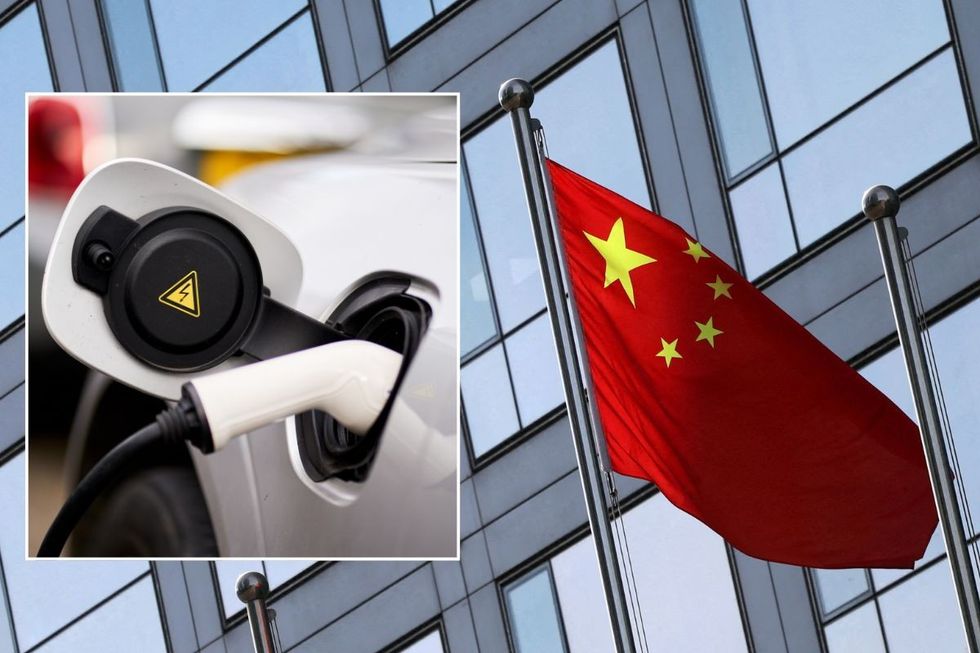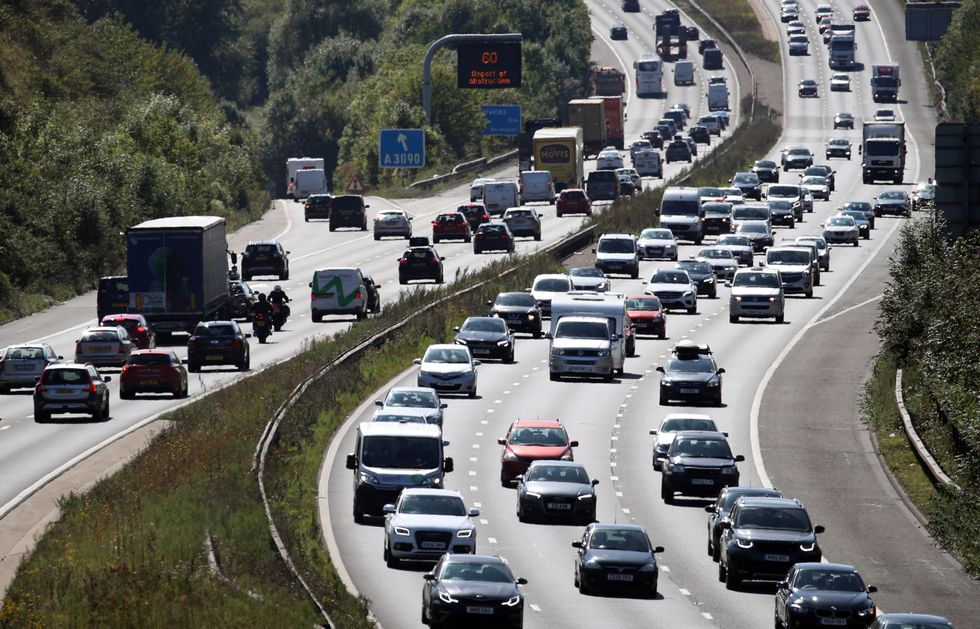The UK Government said it had worked to 'clamp down on potential threats in vehicle construction'
Don't Miss
Most Read
Trending on GB News
British defence firms are advising staff not to connect their mobile phones to Chinese-made electric vehicles due to fears that Beijing could steal sensitive national security data.
Leading companies in the UK's military sector are taking a "cautious" approach to the possibility of the Chinese state spying on staff via electric vehicles.
This security clampdown follows revelations that the Ministry of Defence has banned cars relying on Chinese technology from sensitive military sites across the country.
In some cases, the MoD has asked staff to park their electric vehicles at least two miles from their workplace, according to The i Paper.
Do you have a story you'd like to share? Get in touch by emailingmotoring@gbnews.uk

Some military organisations are telling staff not to charge their phones inside Chinese electric vehicles
GETTY/REUTERS
Companies such as BAE Systems, Rolls-Royce, Raytheon, Lockheed Martin, and Thales are among those taking precautions against potential data theft.
Staff are being told not to park Chinese EVs in production plant car parks, while also advising them not to discuss work when in these vehicles.
Most critically, employees are warned against connecting mobile phones via Bluetooth or charging cables to Chinese-made electric cars.
These measures mirror longstanding security protocols that prohibit staff from using memory sticks in work laptops to prevent breaches.
The concern is that Chinese vehicles could potentially download journey data and access text messages, voicemails, and sensitive work documents from connected phones. One defence firm executive warned that this is "the sort of information the Chinese state might like to get its hands on".
A defence firm executive told The i Paper: "The sale of Chinese cars is growing in the UK, and we are, rightly, cautious about that. We are making our staff aware of the sensible precautions to take if they choose to buy a Chinese EV."
Another source added: "It is safe to assume that every major defence supplier is concerned about the tech in Chinese-built cars."
Joseph Jarnecki, a research fellow in cyber and technology at the Royal United Services Institute, believes defence contractors are taking a sensible approach to the potential security threat.
He said: "In the context where these defence companies are incredibly high value in terms of espionage targets, it's an entirely reasonable risk management approach to take based on the historical evidence we have of Chinese espionage targeting, for example, intellectual property held by defence companies."
Industry experts believe the UK could see a flood of cheap Chinese EVs being imported following President Trump's international tariffs on Chinese vehicles.
The practice, known as "dumping", has been rejected by Chinese firms and experts, who suggest that the success of Chinese cars lies in the superior price and technology.
Under China's National Intelligence Law, Chinese companies are required to cooperate with state intelligence work upon request. This legal framework underpins concerns that vehicle data could potentially be accessed by Chinese authorities.
LATEST DEVELOPMENTS:

There are thousands of Chinese electric cars on the road across the UK
PAJames Bore, managing director of cyber technology firm Bores Group, said: "I am yet to see any evidence that there is malicious software being spread by Chinese cars."
"The moment it does, the Chinese car company market collapses, and that's not the sort of economic upheaval that China really wants," Bore added.
Mike Hawes, chief executive of the Society of Motor Manufacturers and Traders (SMMT), addressed the concerns, saying that all manufacturers with cars on sale in the UK should adhere to data privacy regulations.
Hawes noted that data from apps and paired mobile phones "can be removed from cars according to individual manufacturer instructions, giving peace of mind to motorists".
A spokesperson for the UK Government said: "This Government has helped develop new international regulations to clamp down on potential threats in vehicle construction, monitor emerging threats and respond to any cyber-attacks."









